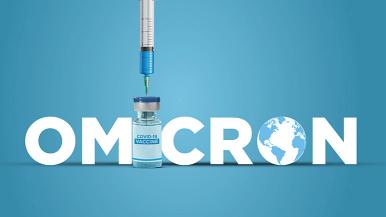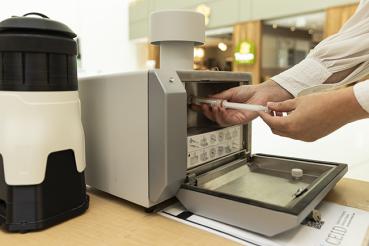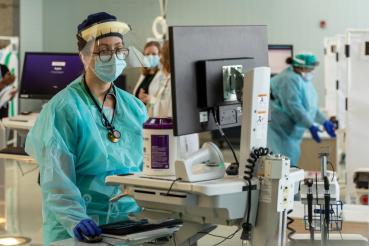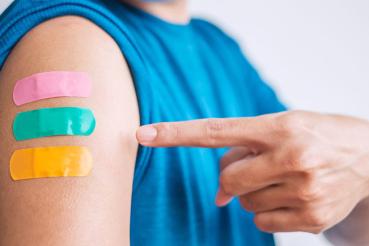As the BA.4 and BA.5 omicron variants remain to blame for most cases of COVID-19 in the United States, we now have new tools to protect against infection: updated versions of the Pfizer-BioNTech and Moderna boosters, which have been approved before a possible surge in COVID-19 cases this fall.
We asked John Segreti, MD, an infectious disease specialist and medical director of infection control and prevention at Rush University Medical Center, to help explain who should get the new boosters and how long to postpone your shot if you’ve recently recovered from COVID-19.
What’s different about the new COVID boosters?
These updated boosters are “bivalent,” unlike the original vaccines and boosters that are “monovalent.” This means the updated boosters are designed to protect against the original strain of the SARS-CoV-2 virus that causes COVID-19, as well as the more recent BA.4 and BA.5 omicron variants.
Who should get the new boosters?
The Centers for Disease Control and Prevention has issued the following recommendations:
- People ages 18 and older are advised to get either the updated Pfizer-BioNTech booster or the updated Moderna booster.
- Teens ages 12 to 17 are advised to get the updated Pfizer-BioNTech booster at this time.
For now, the CDC recommends kids ages 5 to 11 receive the original, monovalent versions of the boosters. No boosters have been recommended yet for kids ages 6 months through 4 years, although they should still get all three doses of their primary series.
If I got an original booster last spring, am I eligible for an updated booster?
If you are 12 or older, the CDC recommends getting boosted if you are at least two months past the date of your last shot. In other words, you are eligible if:
- You completed your initial two-dose series of the Pfizer-BioNTech, Moderna, or Novavax vaccine at least two months ago.
- You received your first or second original Pfizer-BioNTech or Moderna booster at least two months ago.
- You received one dose of the Johnson & Johnson/Janssen vaccine at least two months ago.
You can also use the CDC’s booster tool to find out when you are eligible for an updated booster.
Should I get an updated booster from the same manufacturer as my primary series shots?
If you are 18 or older, you can follow your initial Pfizer-BioNTech or Moderna two-dose series with a booster from either manufacturer.
For those ages 5 to 17, only the Pfizer-BioNTech booster is currently available. Teens ages 12 to 17 can receive the updated version, while kids ages 5 to 11 can get the original version.
Should I get boosted if I recently had COVID-19?
Receiving the booster after you have recovered from COVID-19 can provide additional protection in the months ahead as colder weather drives more activities indoors. Although there are no firm recommendations, you may consider delaying your shot for three months after infection, according to the CDC. People who already had COVID-19 and do not get vaccinated after their recovery are more likely to get COVID-19 again, compared with those who get vaccinated after their recovery.
Learn how to schedule an appointment for an updated booster now.




